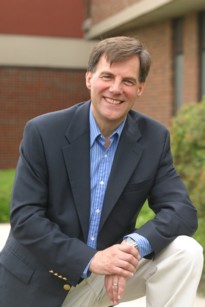Three more aspects of preaching:
Prophetic, Transformational and Incarnational - how well does dialog reflect these?
Prophetic - a bible study dialog certainly allows participation with interesting insights, but is this the same as proclaming God's authoritative word? Such authority derives from Scripture, but also needs God's called preachers, who humbly submit the best of their knowledge, character and skills to deliver God's word with courage. It's confrontational stuff. As someone put it: "It's not us fitting God's story into our lives, but us fitting into God's story." Here is real tension. There's always danger of hearing the gospel in our terms, emphasizing parts we like of God's grace. It's wonderful to be affirmed. But what about God's words of judgement and correction - about sin and forgivness? About selflessness and community?
And does God actually meet our questions with answers? Doug mentioned several times that people come to church with questions yet the speacher avoids them. But in what ways does dialog deal with difficult questions? No one raised questions during the experience.....it seemed a pooling of insights with apparently no urgent questions.
I guess I was most concerned about Doug's role. Sure he needed immense leadership skills, but he seemed to be a "conductor" orchestrating other comments. Afterwards he said that he had shared everthing that he had prepared beforehand, but it was difficult hearing a clear message. Does dialog mute the prophetic voice?
Transformational - closely linked with prophetic - in what ways can dialog lead to individualis and communities being changed? I am sure there are many positive stories about how the Spirit worked on individuals as they participate. But how does such preaching actually break through people's own comfort zones, dealing with ethical issues of behavior, etc. as a group? I think Acts 2:42-47 remains incredibly difficult to respond to because of its high demands of community living before the watching world. Is there need for intentional leading, aided by the Holy Spirit, to help communities grow in responsibility towards each other and their neighbors?
In class this quarter we have been looking at James W. Thompson's book:
Preaching Like Paul in which he claims the apostle Paul sought to build community by repetitive evangelistic and pastoral preaching, always ensuring a doctrinal base. Does building community need more than dialog?
Incarnational - dialog obviously opens up the sharing of good news by many individuals. But how can we ensure we are not dominated by the spontaneous and superficial? I am reminded of a quote about preaching which compared the "scattered self" with the "gathered self." "There is a thoughtful, prayerful, cultivated you that lies deep. There is also a surface you that is immediately available. The latter your people can have any time. To preach well is to go in search of the former.....it is a mistake to think that the scattered self is authentic and the gathered self somehow less open and sincere.(Gerard Sloyan,
Worshipful Preaching page 22.) Possibly dialog leads to more "scattered selves" sharing?
I think Doug's challenge to dead speaching must be heard loud and clear I see dialog as a vital way of involving others in the preaching task. My own practice involves others in dialog on the way to more traditional proclaming, by employing my blog to generate many postings. But this whole experience at Oak Lawn opened my eyes to new possibilities.
It will be very interesting to see how the congregations at Oak Lawn will be able to respond. As I hear things I'll try and post some details in the future.



